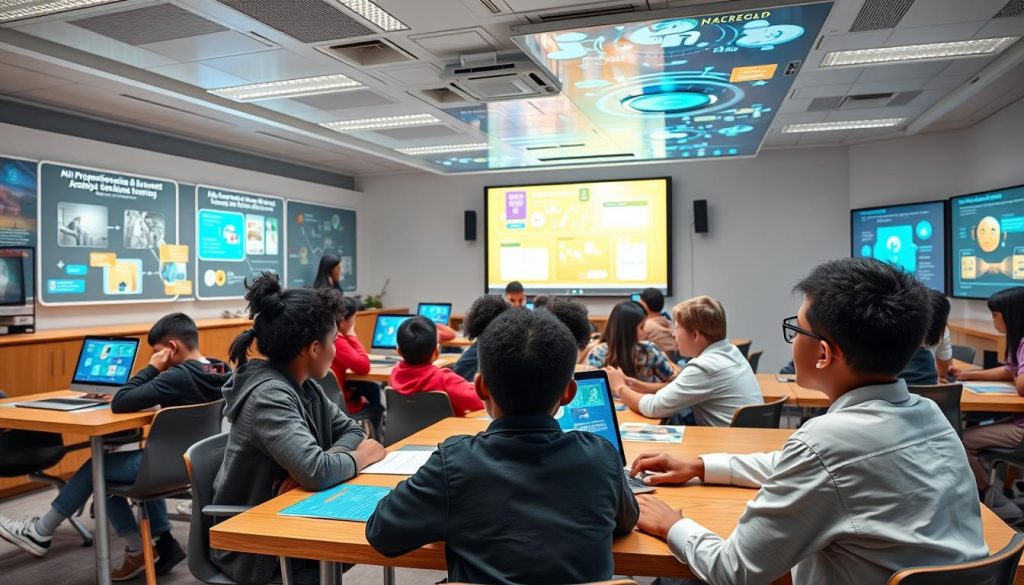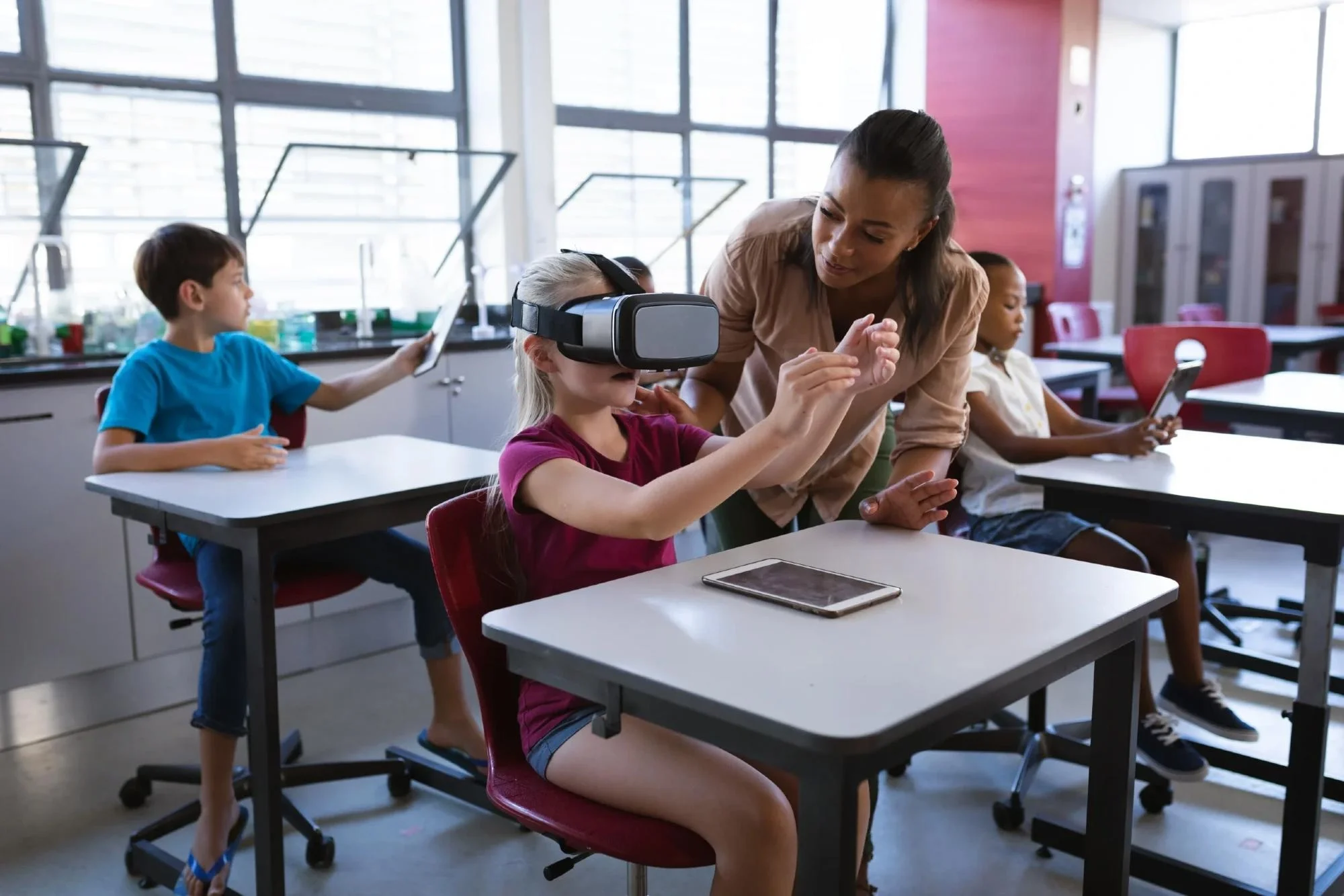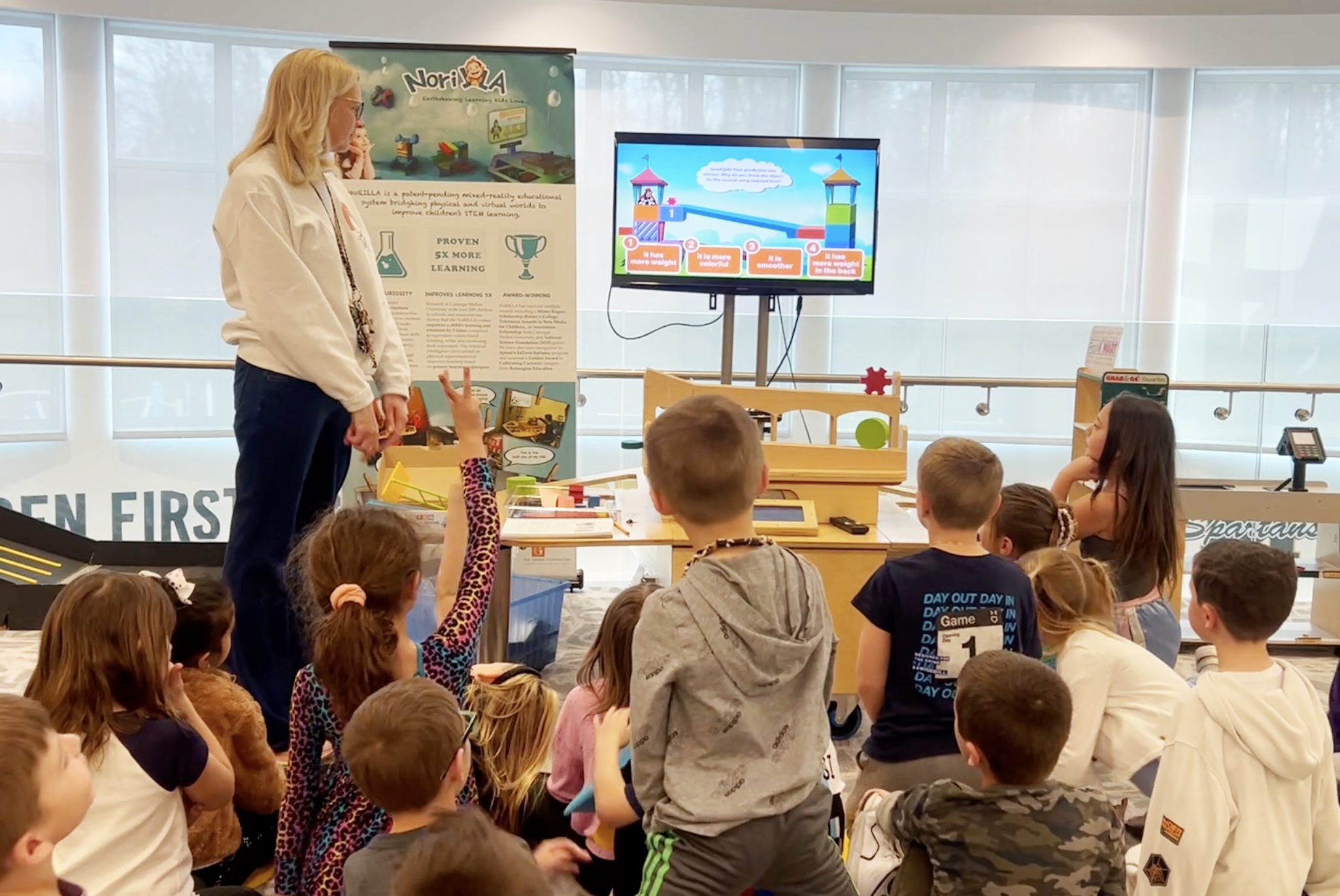article Article Summary
Sep 11, 2025
Teachers' intentions to teach AI in K-12 settings are primarily driven by autonomous motivation, which is strengthened by basic psychological need satisfaction and moderated by self-efficacy and contextual factors.
Teachers' intentions to teach AI in K- settings are primarily driven by autonomous motivation which is strengthened by basic psychological need satisfaction and moderated by self-efficacy and contextual factors Objective The main goal of this study was to examine the factors influencing teacher intention to teach artificial intelligence in K-... continue
article Article Summary
Sep 10, 2025
A capstone design project successfully developed an interactive Unity application and lesson plan that uses bio-inspired animal vision concepts to engage middle school students in STEM learning.
A nbsp capstone design project successfully developed an interactive Unity application and lesson plan that uses bio-inspired animal vision concepts to engage middle school students in STEM learning Objective The main goal of this study was to design develop and test a capstone design project that integrates bio-inspired artificial intelligence... continue
article Article Summary
Sep 09, 2025
Using semantic tagging on AI-generated science texts reveals key educational topics that can effectively guide STEM curriculum design for K-12 students through data-driven approaches.
Objective The main goal of this study was to employ semantic tagging techniques on AI-generated science texts to identify key semantic tags that can serve as indicators for determining relevant and appropriate topics for STEM instruction in K- educational contexts The researchers aimed to address the common problem of lacking... continue
article Article Summary
Sep 08, 2025
A comprehensive bibliometric analysis of 2800 AI in education papers from 1990-2024 reveals explosive growth post-2018 driven by generative AI, with significant concentration in higher education and medical fields, but concerning gaps in ethical governanc
A comprehensive bibliometric analysis of AI in education papers from - reveals explosive growth post- driven by generative AI with significant concentration in higher education and medical fields but concerning gaps in ethical governance frameworks and K- research Objective This study systematically analyzed global publication patterns keyword trends and research... continue
article Article Summary
Sep 05, 2025
A comprehensive scoping review of AI literacy assessments reveals that most studies focus on K-16 students using questionnaires and computer-based tests to primarily assess AI knowledge, with significant gaps in reliability/validity reporting and limited
A comprehensive scoping review of AI literacy assessments reveals that most studies focus on K- students using questionnaires and computer-based tests to primarily assess AI knowledge with significant gaps in reliability validity reporting and limited assessment of practical AI usage skills Objective This scoping review aimed to systematically evaluate and... continue
article Article Summary
Sep 04, 2025
An AI instructional module significantly improved pre-service teachers' knowledge, attitudes, and comfort levels toward artificial intelligence while revealing their primary conceptualization of AI as computers mimicking human intelligence.
An AI instructional module significantly improved pre-service teachers' knowledge attitudes and comfort levels toward artificial intelligence while revealing their primary conceptualization of AI as computers mimicking human intelligence Objective The main goal of this mixed-methods study was to investigate the impact of integrating artificial intelligence AI into pre-service teacher education... continue
article Article Summary
Sep 03, 2025
Despite decades of civil rights legislation and educational reform efforts, Texas K-12 schools continue to exhibit systemic inequities in disciplinary practices, with economically disadvantaged students and English Language Learners facing significantly h
Despite decades of civil rights legislation and educational reform efforts Texas K- schools continue to exhibit systemic inequities in disciplinary practices with economically disadvantaged students and English Language Learners facing significantly higher rates of exclusionary discipline than their peers Objective The primary goal of this quantitative study was to examine... continue
article Article Summary
Sep 02, 2025
K-12 students can learn effective AI prompting skills through hands-on practice with immediate AI-generated feedback, significantly boosting their confidence in using AI for educational purposes.
K- students can learn effective AI prompting skills through hands-on practice with immediate AI-generated feedback significantly boosting their confidence in using AI for educational purposes Objective The main goal of this study was to design implement and evaluate a web-based instructional module that teaches prompting literacy to secondary school students... continue
article Article Summary
Sep 01, 2025
Students primarily use generative AI for creative content generation and language support, with emerging applications in personal development areas like career guidance and emotional support that have received little academic attention.
Students primarily use generative AI for creative content generation and language support with emerging applications in personal development areas like career guidance and emotional support that have received little academic attention Objective The main goal of this study was to conduct a comprehensive analysis of how K- students and teachers... continue
article Article Summary
Aug 29, 2025
Structured AI coaching significantly improves high school STEM teachers' perceptions of artificial intelligence as a powerful tool for fostering equity and inclusion in their classrooms.
Structured AI coaching significantly improves high school STEM teachers' perceptions of artificial intelligence as a powerful tool for fostering equity and inclusion in their classrooms Objective The primary purpose of this qualitative multiple case study was to investigate how structured AI coaching influences high school teachers' perceptions of artificial intelligence... continue
article Article Summary
Aug 28, 2025
Integrating ChatGPT-powered AI tutoring with virtual reality classrooms creates highly engaging and well-tolerated learning environments for cardiac anatomy education in K-12 students.
Integrating ChatGPT-powered AI tutoring with virtual reality classrooms creates highly engaging and well-tolerated learning environments for cardiac anatomy education in K- students Objective The main goal of this study was to design develop and evaluate a social virtual reality VR classroom system that integrates text-based conversational AI ChatGPT to enhance... continue
article Article Summary
Aug 27, 2025
Ontario secondary teachers frequently use data for problem-solving in online courses, but gaps in training, infrastructure, and strategic application limit their ability to transform data into meaningful instructional improvements.
Ontario secondary teachers frequently use data for problem-solving in online courses but gaps in training infrastructure and strategic application limit their ability to transform data into meaningful instructional improvements Objective This comprehensive dissertation aimed to investigate how secondary school teachers in Ontario engage with data-based decision-making DBDM in online learning... continue